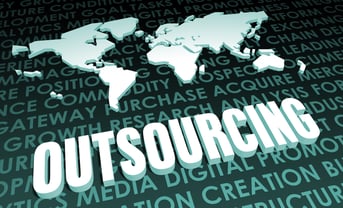 Every business owner wants to be able to do business in a faster, easier, more efficient manner. Nobody wants to actively pay more for labor than they have to, which is one of the reasons that many company owners have offshored their labor needs to developing countries around the world.
Every business owner wants to be able to do business in a faster, easier, more efficient manner. Nobody wants to actively pay more for labor than they have to, which is one of the reasons that many company owners have offshored their labor needs to developing countries around the world.
The promise of cheap overseas labor has drawn many manufacturers to offshore their production to reduce their operating costs.
However, what does outsourcing really cost your business? Is it really better for your company to manufacture products in China or Taiwan than in America?
To help you decide for yourself, here are a few things that offshoring might add to your total cost of doing business:
Hidden Offshoring Fee #1: Responsiveness of Production Team
 When you outsource labor to another company, the workers who are putting in the hours to make your products are not your employees. They’re the employees of the company that you contracted to handle your production for you.
When you outsource labor to another company, the workers who are putting in the hours to make your products are not your employees. They’re the employees of the company that you contracted to handle your production for you.
This will, naturally, result in a loss of control over your production. This is because you can no longer simply walk down to the production floor and directly engage with workers who are a part of your company. Instead, you have to negotiate with the other company’s owners or customer service department to process your requests.
Not being able to simply engage with your own teams on your own schedule makes your production process less responsive to changes in your company’s situation. This, in turn, can lead to your company missing lucrative opportunities that are based on timely responses to new situations.
Hidden Offshoring Fee #2: Production Errors from Miscommunications
When you offshore your production to another country, there are additional language and cultural barriers to deal with, even when the reps at the other company are English-cognizant.
Idioms, sayings, and cultural minutiae that are second nature to a fellow American might be completely outside the frame of reference for a foreign worker who was never immersed in American culture. This leads to miscommunications that can cause errors in production.
These errors can result in product rejections or recalls, meaning lost production time and revenue for your own company.
Hidden Offshoring Fee #3: Slow Shipping
While the slowness of a production team’s response to your requests might cost your business a few days or a week of production time, the slow shipping speed of oceangoing cargo can cost you months.
When your company’s products are finally ready for shipping, they have to wait for:
- Outgoing customs processing.
- A cargo ship heading to the right destination with available space.
- Long, slow sea voyages.
- Incoming customs processes.
- Transfer to land-based shipping and delivery.
All told, the extra processes that come with trying to ship out can add anywhere from four to six months to your company’s production timetable.
How much product can your competitors make and sell in that 4-6 month period where they don’t have to compete with your products?
Every day that your own delivery of product is delayed is a day that your direct competitors have to leverage the advantage of being available to customers for immediate gratification.
Hidden Offshoring Fee #4: Dealing with Extra Red Tape
 In the previous example, customs delays was cited as one of the reasons for slow shipping speeds on goods made in overseas countries. Passing your products through customs is one of the many additional bits of red tape that manufacturers may have to deal with when outsourcing their labor.
In the previous example, customs delays was cited as one of the reasons for slow shipping speeds on goods made in overseas countries. Passing your products through customs is one of the many additional bits of red tape that manufacturers may have to deal with when outsourcing their labor.
Even when making goods in developing nations, there are still regulations and standards that your products have to follow if they’re to be sold in the U.S.A., and now your production process is also subject to any red tape the other country might have as well.
Admittedly, many developing nations have far fewer regulatory red tape than the U.S., but missing a simple, easily-overlooked regulation can become costly.
Worse yet, the companies that you deal with to handle your production tasks are not governed by the same laws and regulations that your company is. If a contract dispute comes up, you can bet that a company from the other country will be given preferential treatment in their home courts, and U.S. court rulings will not affect them in their country of operation (although a U.S. court injunction against the company can inhibit the other company’s ability to operate in the U.S.).
How much could these hidden costs end up costing your company?
Truth be told, it’s hard to calculate, as many of these costs might vary based on your products and market share.
However, as many companies discover these hidden costs of offshoring production labor to other countries, they are beginning to move their production lines back to American shores, which may be one of the reasons why 2014 saw the first overall net gain in manufacturing industry employment in many years.
Learn how Marlin Steel helped other companies improve their production lines by checking out the case study at the link below:



.gif)


